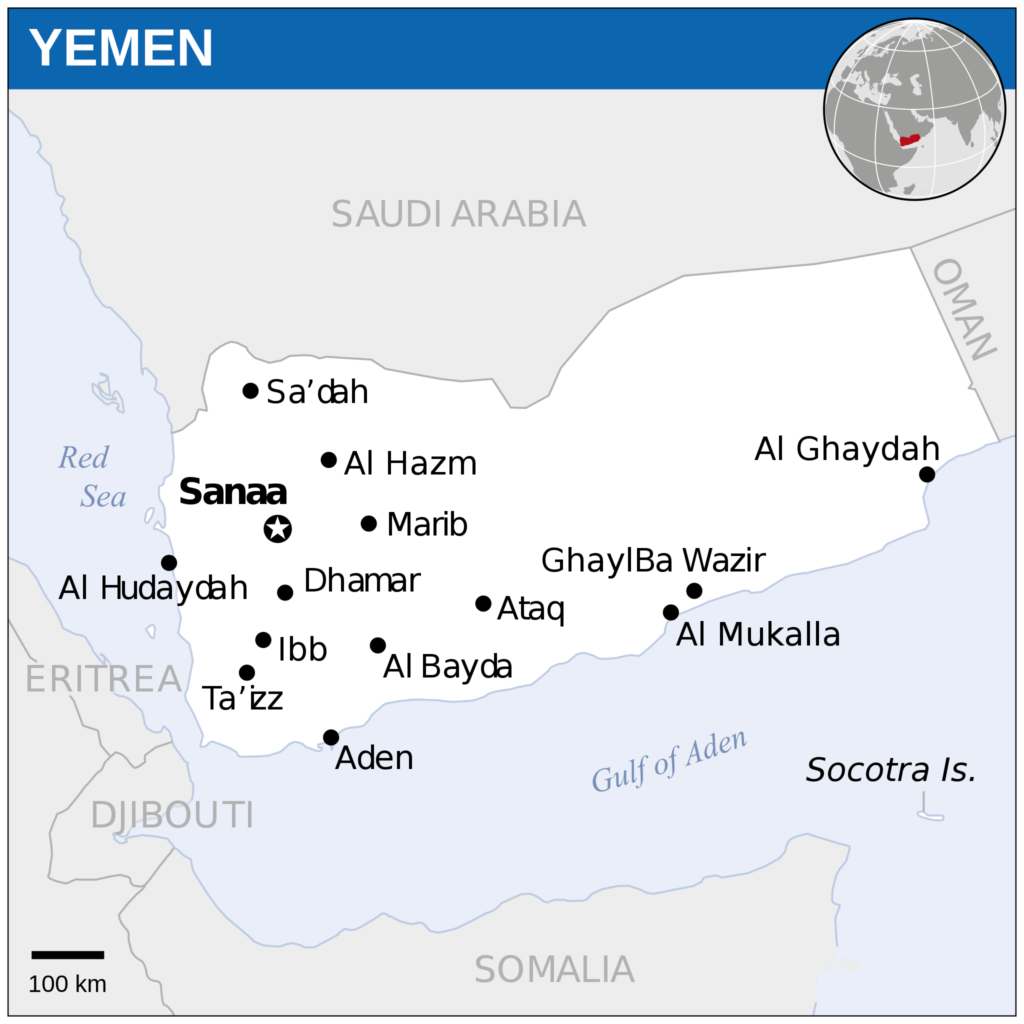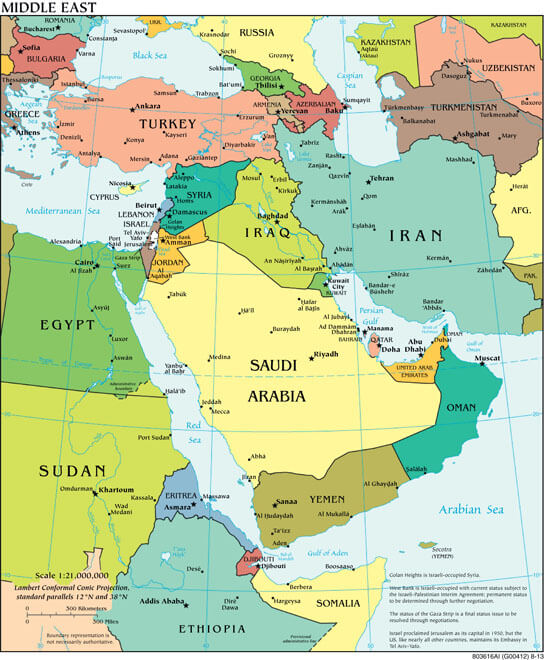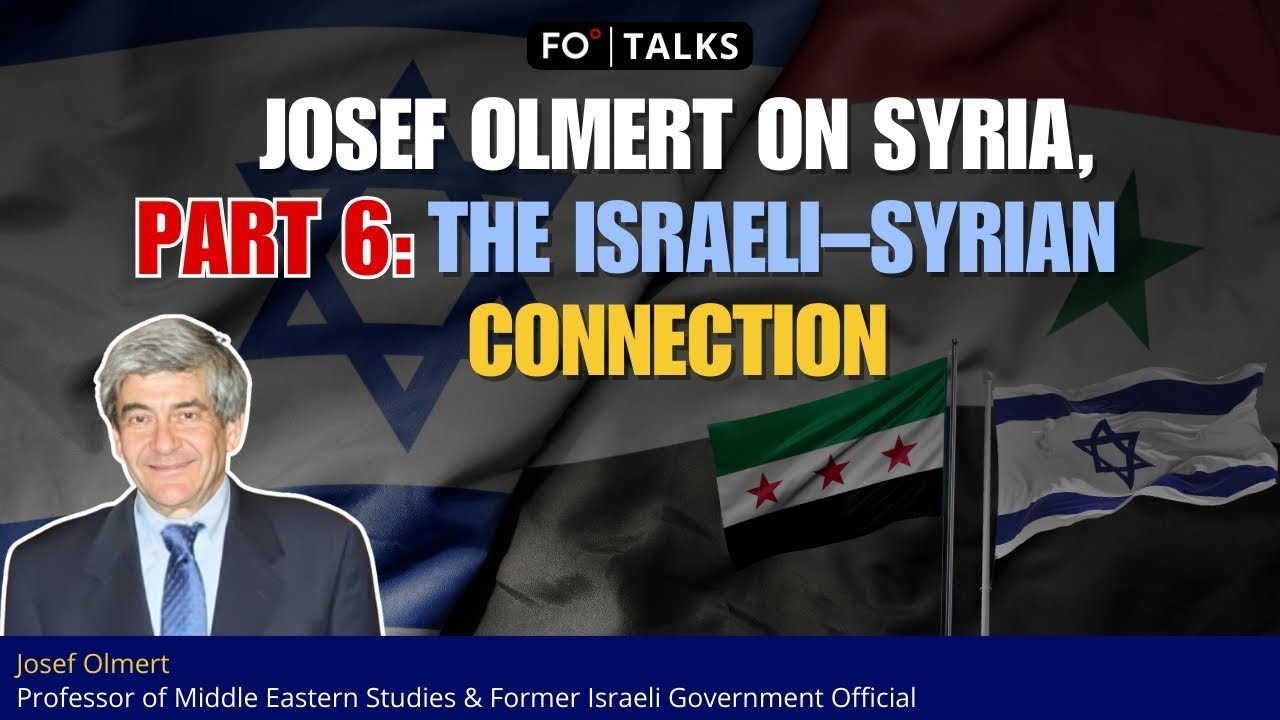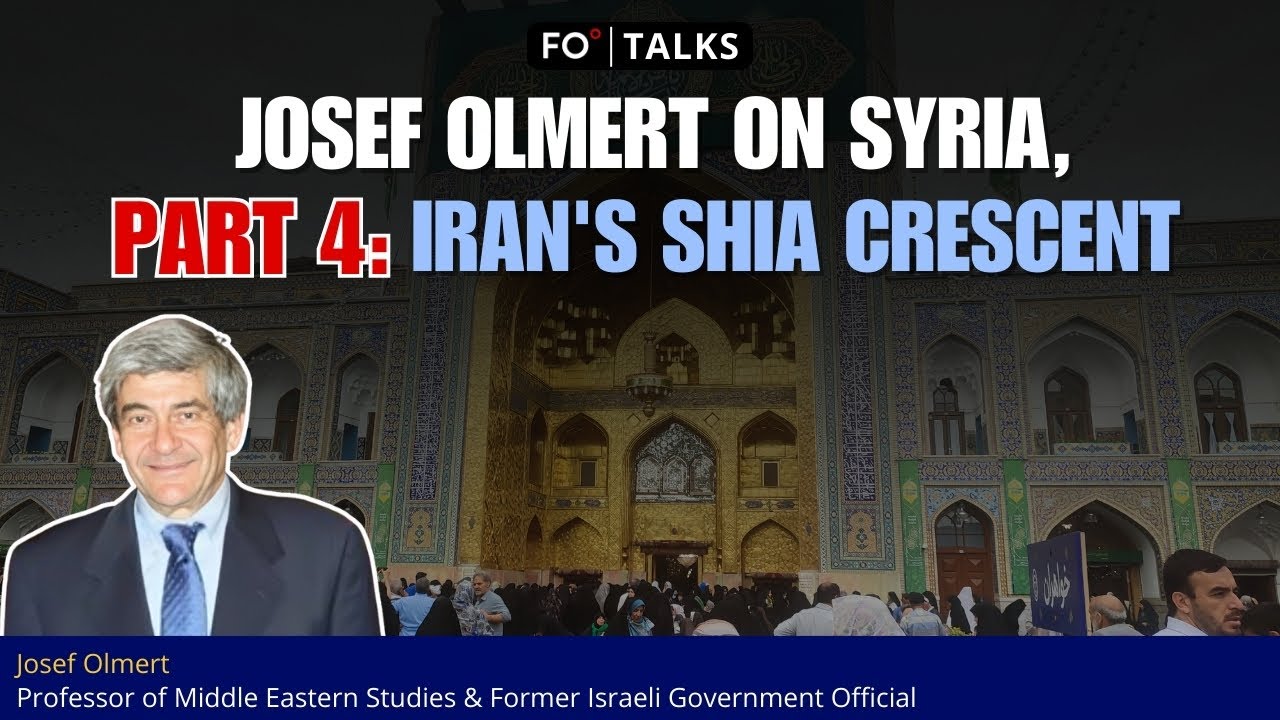The Houthis, a Zaydi Shia militant group based in northern Yemen, have been in the headlines for weeks. Since the outbreak of the Israel–Gaza war, the Houthis have used drones, missiles and boats to attack ships in the Red Sea. They target vessels that they believe to be doing business with Israel or owned by Israelis. US warships in the area have shot down Houthi drones and missiles, and have been targeted themselves.
Increasingly, the Houthis seem to be attacking indiscriminately. They carried out at least a dozen strikes on merchant ships and captured two of them. The Houthis have taken both these ships to the principal Yemeni Red Sea port of Hudaydah, which they control.

Why is the Red Sea route so important?
The Red Sea connects the Mediterranean, via the Suez Canal, with the Indian Ocean, via the Bab-el-Mandeb Strait. It is the shortest sea route between Asia and Europe. Because of this, it carries a massive amount of global trade, including as much as 30% of container shipping. About seven million barrels of oil pass through the sea every day. The Red Sea also contains Israeli and Jordanian ports on its other branch, the Gulf of Aqaba. Any shipping trying to reach Europe or Israel from Asia must pass through the Bab-el-Mandeb and therefore close to Houthi-controlled territory.

The only other way to transit between Asia and Europe is to sail down all the way around Africa and past the Cape of Good Hope. This adds thousands of miles of extra travel. A modern cargo ship might make the trip from East Asia to Europe in two weeks. The Cape route can take an entire month, adding huge amounts of extra cost in terms of fuel, insurance and payroll.
This means higher prices for end consumers. Since not only finished goods but basic inputs like oil and gas go through the Red Sea, this means that the prices of everything will go up. Costlier fuel means costlier transport and manufacture. Inflation will increase, interest rates will rise and economic growth will slow.
The US relies less on international trade and does not need the Red Sea route to reach either Asia or Europe. So, the US will be the least affected. Europe, South Asia and East Asia will feel the most pain. So too will the oil-exporting countries of the Persian Gulf, such as Saudi Arabia, Kuwait and Iraq, since much of the oil that leaves their ports must pass through the Suez to reach key markets.
Who’s backing the Houthis?
This relatively small militant group in southern Arabia is causing disproportionately large damage. The reason they can do so is simple. Iran backs them. The Houthis are not making ballistic missiles on their own but getting these missiles from Iran.
Iran, like the Houthis, follows the Shia version of Islam. For the past nine years, the Houthis have been engaged in a civil war for control of Yemen with their mostly Sunni rivals to the east. Saudi Arabia, a Sunni nation, leads a coalition that opposes Yemen in the war. Iran has a vested interest in not letting a fellow Shia power fall to their religious rivals. But it’s not just religion that makes Iran act. By supporting the Houthis, Iran is keeping its regional rival, Saudi Arabia, occupied with a chronic military threat to its south.

The Iranians have already done their damage. The war has become an endless quagmire for Saudi Arabia. At least 400,000 people have died so far. The Saudis are now trying to back out and have negotiated an unofficial truce. They were unable to dislodge the Houthis despite the indiscriminate bombing of Yemen, for which they received international condemnation. The failure is due in no small part to mismanagement, corruption and incompetence in the Saudi officer corps. The Saudis even used mercenaries, at one point fielding 12,000 Sudanese troops in Yemen. Yet, Saudi-backed forces made precious little progress.
One might wonder how Iran is able to support an ally on the other side of Arabia. Between Iran and Yemen stand Saudi Arabia, several other Sunni kingdoms, Oman and the part of Yemen controlled by Houthis’ rivals. Yet Iranians are masters at avoiding sanctions, and they know how to create supply routes, which their enemies cannot interdict. With some exceptions, Iran has been able to ship weapons to Yemen by sea without being intercepted by Western or Arab warships.
Iranians have also been able to train the Houthis to jury-rig simpler weapons, including drones, from locally available supplies. But ballistic missiles are too complicated to build in this way and are doubtlessly being shipped from Iran. Iranians are not only shipping these missiles but also most certainly training the Houthis to operate such high-tech machinery.
The Iranian factor explains why the Houthis are attacking shipping lanes. This gives Iran the chance to put pressure on the West and claim leadership in the Muslim world, which is enraged about the massive Israeli attack on Gaza. Note that the Iranians might not be planning each individual Houthi attack, but they are certainly encouraging the Houthis and most likely providing them with intelligence. It’s not just gallant Islamic solidarity with Gaza that motivates the Houthis. Their assault is part of a much larger effort by Iran and all of its proxy groups throughout the Middle East to put pressure on Israel and its largest backer, the US. Iran hopes to dislodge the Great Satan from the Islamic world and to extend its own influence.
The West tried to fight Iran using economic sanctions to stop its sponsorship of terrorism and nuclear weapons programs. Now Iran is showing that it, too, can hit the West in their pockets by interfering with global trade.
What will be the economic and political impact of the attacks?
And hit them it has. Shipping and oil giants such as Hapag-Lloyd, Maersk and BP are halting operations in the Red Sea. Using futures contracts, many consumers are still purchasing oil at pre-conflict prices. But those contracts will eventually expire, and costs will then rise significantly.
In response to the Houthi attacks, the US formed a coalition of ten nations, including the UK, France, Italy, Spain and the Netherlands, to police the shipping lanes. Bahrain is the sole Arab country publicly acknowledging membership. Other Arab powers, though, are engaging in an unofficial manner due to the political sensitivities of the Gaza conflict. Saudi Arabia is facing disruptions in its Red Sea ports. Yet it must tread carefully, lest it be seen as siding with the infidel against Islamic interests in Palestine.
The political and economic ramifications extend far beyond the Middle East. The Suez, after all, was initially created to link Europe and Asia, specifically Britain and India. China relies heavily on exporting manufactured goods to Europe via the Suez route. Yet, even though it maintains a naval base near the Bab-el-Mandeb in Djibouti, it is not participating in the US-led coalition. Should things get worse, China may perhaps join the coalition, as may other powers like Germany or Japan.
The conflict may extend still further. The Houthis have shown themselves to be a much greater threat than previously thought. They threaten Saudi Arabia and Israel with their ballistic missiles. If Iran provides them some of their longest-range missiles, the Houthis could threaten NATO members like Greece, Turkey and even Italy. It may not be long before the Western alliance decides it would be better off bombing Houthi missile sites and command centers rather than continue to bear the assault. If that happened, Iranian warships could become targets too, sparking a regional war.
Iran would do well to tell its allies to back down. No one — not the Saudis, nor the Chinese, nor the Americans, nor the Iranians themselves — wants a regional war. Yet the Iranians may decide that pursuing their interests is worth it despite the risk. For their part, the Houthis have no reason to back off. They are proving themselves as a credible military force that can do real damage. If and when a shooting war breaks out, the Houthis and their Iranian backers will have to reassess their options. There is no telling now whether they would back down or dig in.
[Anton Schauble wrote the first draft of this piece.]
The views expressed in this article/video are the author’s own and do not necessarily reflect Fair Observer’s editorial policy.







































Comment